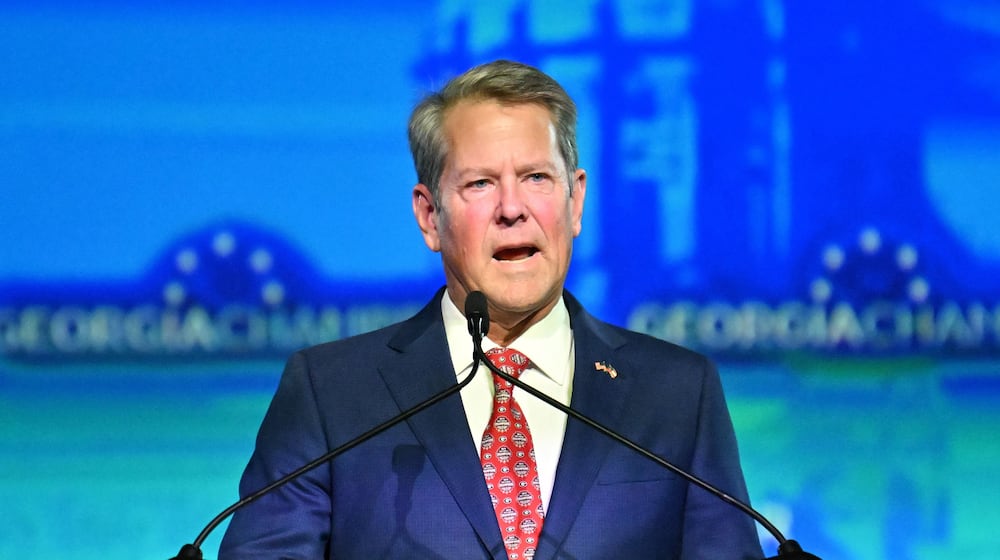Georgia’s first toll road funded with private investment and its most expensive transportation contract in history is seeking a contractor, offering hope to thousands of commuters traveling through Cobb and Cherokee counties – if they are willing to pay a fee.
The project, to build optional toll lanes alongside I-75 and I-575, could cost as much as $1 billion. If successful, it would be the first time after eight years of trying that a Georgia law intended to attract private investment into public roadbuilding yielded a finished project.
But it carries a risk: The private roadbuilders are to be paid back by toll money -- and up to $300 million in taxpayer funds.
"It is historic," said Gov. Nathan Deal on Thursday, noting that the corridor was one of the most congested in the state. "I think it will set a pattern as to whether or not you can go to this kind of cooperation with the private sector as a vehicle for advancing projects that state government does not have the money to do on its own."
The state has given up on ever having enough money to solve Atlanta congestion with traditional road widening with taxpayer funds. Instead the DOT has decided that any interstate highway expansions in the metro Atlanta area will be "managed" -- likely tolled -- and where possible, funded with private investment. DOT sees the I-75 project as one piece of a metro-wide system that could cost $16 billion, of which $7 billion would have to come from public funds.
Georgia DOT's director of private toll projects, Gerald Ross, in a statement called the search for a contractor a "tremendous milestone."
If the I-75 and I-575 project draws an acceptable bid and a contract is signed next year, the project could open to I-75's 300,000 daily commuters in 2016, according to DOT officials. It would build two reversible toll lanes from Akers Mill Road to the I-75/I-575 split, and one reversible lane on I-75 up to Hickory Grove Road, and one on I-575 up to Sixes Road.
The toll fees would be charged electronically, with no stopping for toll booths. The fees would rise and fall with congestion, always aiming to stay high enough so that traffic would remain free-flowing. Although the point of the toll fee is to keep out people unwilling to pay for it -- and thus to provide reliable free flow -- the project should also provide relief to the drivers in the regular lanes, since drivers who switch to the toll lanes would free up space.
Such optional toll projects rarely pay for themselves. The state's most advanced optional toll project, on I-85 in Gwinnett County, cost about $50 million to $60 million to build, and is set to go live on Oct. 1. That one is funded by taxpayer dollars, not private investment. The maximum toll has not been set yet on the I-75/I-575 project, but on the I-85 project it is 90 cents per mile at maximum congestion, though special circumstances permit the state tollway authority to go higher.
The toll lanes would be leased to the private road company for at least 50 years, with options for a 10-year extension. Although the private roadbuilders would be repaid with toll money, that would not be enough to fund the whole project. The $300 million in public funds that Georgia is prepared to spend on this project is more than the DOT's entire state budget for road widening in the last fiscal year, though the state's required subsidy won't be known until a contractor is selected.
Gov. Deal on Monday led a finance committee to approve borrowing $100 million of that in the future if necessary, but last week he voiced "concerns" about the project's contract, stopping the bidding in its tracks. On Monday the committee met again, and state Attorney General Sam Olens suggested a contract revision that he said clarified the contract's terms to protect the state. A spokeswoman for Deal said his concerns were allayed.
Deal's concerns centered around a clause in the contract that protects the project developers from losing toll revenue when other projects are built in the area that unexpectedly reduce congestion and thus lower their toll revenues. Lawyers who drew up Georgia's contract -- which they emphasize is still a draft and could change -- say that projects in Georgia's current transportation plans are protected, as are transit projects. They say Georgia can build any project it wants, but in limited circumstances the developer could claim that Georgia owes it money for building a project that decreased their toll revenues, a claim it would have to prove.
Following Monday's meeting, State Sen. Doug Stoner, whose district includes the project, said he remains concerned, given the last-minute way the issues had surfaced in the contract, and the thin top management at DOT overseeing the toll program. Ross is not only director of the department's toll program but also chief engineer. "I wish we could take a little bit more time to do our due diligence," Stoner said, "because I'm afraid of other things in the contract that could come back to bite us." The state is not releasing the contract until after it is signed, saying it is protecting an open procurement.
The three groups vying for the contract are led by the French company VINCI Concessions and the Spanish company OHL Concesiones; by Cintra Infraestructuras, of Spain, and Grupo Soares da Costa, of Portugal; and by ACS Infrastructure Development, a branch of the Spanish company Grupo ACS.
About the Author




